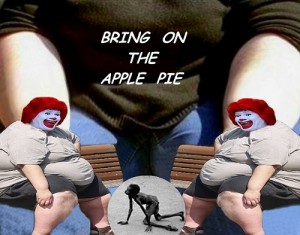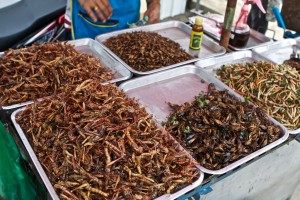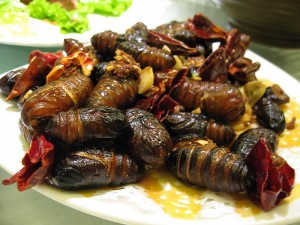Are you hungry and want something to snack on? Well what about insects? Although the idea of consuming insects, scientifically known as entomophagy, may sound absurd and even disgusting a third of the worlds population practices it. And why shouldn’t it? According to the United Nations Food and Agricultural Health Organization (FAO), eating insects can not only control world hunger but it can also reduce obesity and is good for the environment.
The world’s population is predicted to increase to 9 billion people by 2050 so the demand for food will also rise. Food production will need to be increased as the population rises but it would be difficult to do so due to factors such as climate change, pollution, overfished water resources and decreased productivity of farm lands. Thus the FAO is encouraging insect based diets as an alternate food resource. Insects are packed with high quality protein and low fat content which would make them an ideal meal for undernourished individuals in famine-stricken countries. The protein levels in insects are so rich that they meet the standards of protein levels found in both meat and milk. Furthermore, fat content in insects is comparatively lower than in meat and milk. For example, according to the USDA National Nutrient Database, house crickets contain about 205g/kg of protein and only 68 g/kg of fat whereas beef contains 256g/kg of protein with 187g/kg of fat and milk contains 265g/kg of protein with 268g/kg of fat.

- Western society faces the problem of obesity because of fast-food diets such as McDonalds. Image: FRED (Flickr Creative Commons)
While the rest of the world battles hunger, the Western society faces the problem of obesity because of poor fast food diets and lack of exercise. The amount of fat intake based on fast food diets is above the maximum and it is extremely unhealthy. Insect based diets are a better alternative because insects contain less fat, eight essential amino acids, vitamins A, B12, and minerals such as riboflavin and thiamine. All these nutritional elements make up a balanced and healthy diet for a good lifestyle.
Eating insects is also healthy for the environment because of their many “green” benefits. It is better to consume insects rather than cattle because insects produce the same amount of edible meat as cattle except they require less feed. This is because insects are cold-blooded and therefore need less energy to maintain their body temperature. The insects intake of less feed compared to the cattle is benefical because less amount of water is used for irrigation and less land is also required to grow food for livestock. Furthermore, insects also emit fewer greenhouse gases and they don’t compete with humans for food unlike other farm animals which have to be fed with grains or corn. Instead, they take up human and plant waste.

In conclusion, insects contribute greatly both to society and the environment. Hopefully after assessing the numerous benefits that insects have to offer you will probably change your mind as well. So how about a plate of fried grasshoppers garnished with coriander? Cheers.
– Anupreet Sihra
(1)Why Insects Should Be in Your Diet. Retrieved 1/19, 2014, from http://www.the-scientist.com/?articles.view/articleNo/34172/title/Why-Insects-Should-Be-in-Your-Diet/
(2) Insects for Food and Feed. Retrieved 2/3, 2014, from http://www.fao.org/forestry/edibleinsects/en/



One response to “What’s for Dinner?”